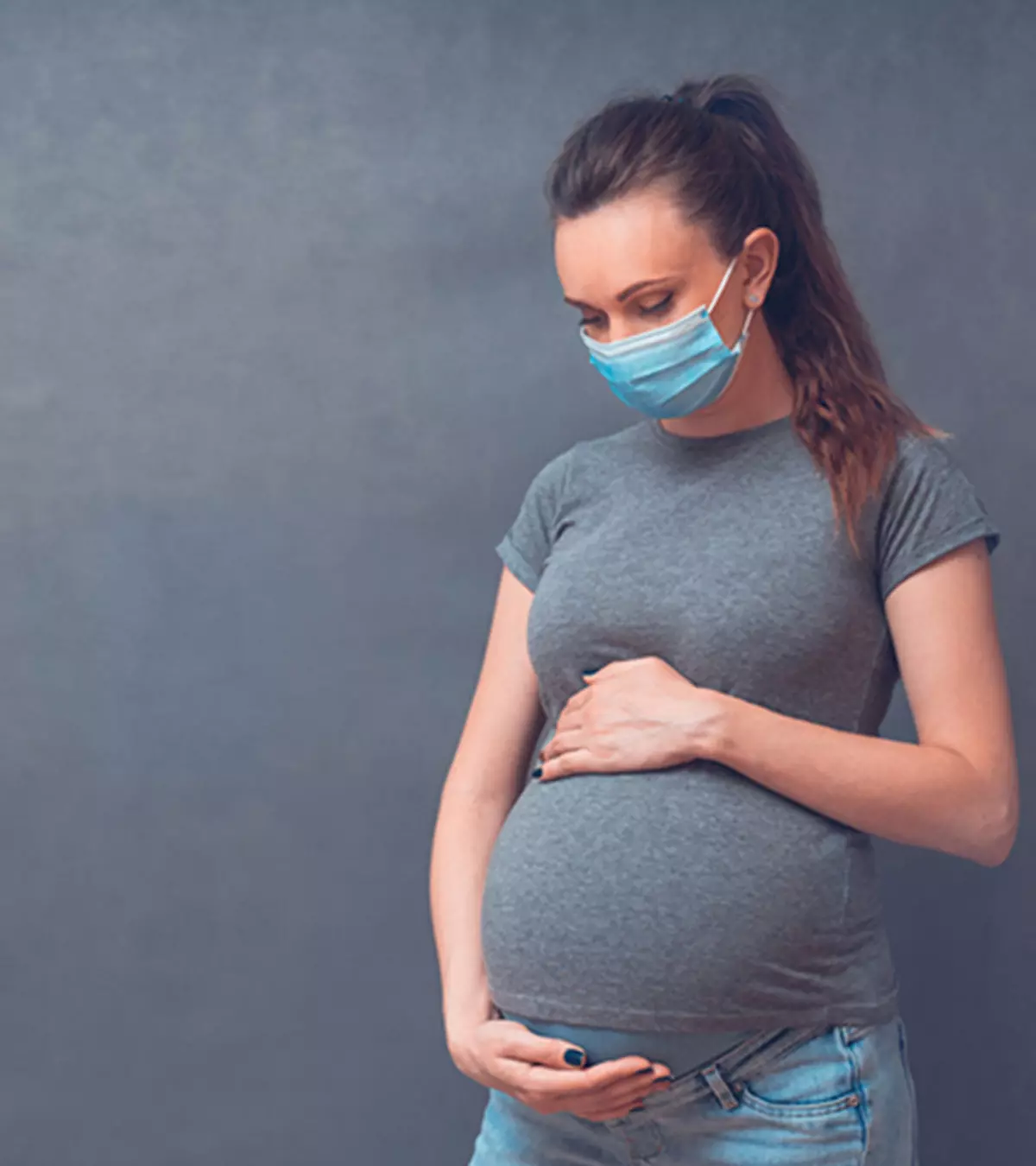
Image: Shutterstock
With the pandemic fully raging around us, expecting mothers have not just themselves to worry about but their unborn babies as well. We’ve heard stories of pregnant mothers being infected. Whether or not this impacts the unborn child or not, we did not know — until now. In a study conducted recently, it has been concluded that mothers who are COVID-19 positive can pass antibodies that protect their newborns (1). This definitely gives us reason to smile, particularly if you are a pregnant mother who has recently been tested positive. But what is this study all about, and how safe are you and your newborn precisely? Read on to know more about this new piece of information.
About The Study That Was Conducted
Image: Shutterstock
The study was conducted on COVID-19 infected pregnant mothers-to-be and was published in JAMA Pediatrics. The researchers involved in the study found that infected mothers-to-be passed the SARS-CoV-2 IgG antibodies to their babies in the womb (2).
The study observed that the antibodies passed through the placenta to the child in the womb in 72 out of 83 women who were pregnant in a hospital in Pennsylvania. Alongside, it was also noticed that infants whose mothers did not have COVID-19 when born had no antibodies present in them. Antibodies are found in the blood after an infection; these antibodies help protect you against the same illness once it recognizes it again (3).
It was observed that a higher number of antibodies were transferred to the newborn if the time between the mother contracting the virus and delivering the baby was longer. Interestingly, none of the babies tested positive for COVID-19 after their delivery, even though their mothers were infected while pregnant (4).
It is worth noting that although the SARS-CoV-2 IgG antibodies were detected in the newborn baby, another kind of antibody, the SARS-coV-2 IgM, was not detected. This antibody essentially indicated two things — either you are currently infected or that you were recently infected. None of the 72 babies of the 83 had this antibody present in their blood (5).
What Does This Mean For You And Your Baby?
Image: Shutterstock
The chances of pregnant mothers passing on the COVID-19 virus to their unborn babies cannot be completely ruled out. However, this study suggests that it is most likely uncommon. It is indeed good news, mainly if you are currently pregnant and infected. While the study does say that the infected mother passes on antibodies to the child through the placenta, it does not shed enough light on how much antibodies are passed. A sufficient amount of antibodies are required to prevent contracting COVID-19 entirely. More research will have to be conducted in this area for clarity (6).
More Studies In The Pipeline
The study conducted by JAMA Pediatrics is excellent news. We can now breathe a sigh of relief, knowing that there are high chances of you passing on antibodies to your child if infected. However, additional research will have to be done to understand how effective these antibodies are in protecting the baby from potential infection in the future. In addition to this, there is the status of the vaccination. The jury is still out on whether or not infants in the womb get infected if the pregnant mother gets vaccinated. There is a lot of ambiguity surrounding this area, as we do not know if a vaccinated pregnant mother will transfer antibodies too — studies will have to be conducted on this to know more. One study does suggest that a vaccinated mother passes antibodies to their newborn child (7). However, the data available is insufficient and inconclusive.
It’s been more than a year since the pandemic hit us, and research is still ongoing in many areas. This study can help pregnant mothers relax and heave a sigh of relief. However, this does not mean you take your safety measures lightly. It is essential to stay safe within the confines of your home and follow all the necessary precautions. You are responsible not just for the safety of yourself and the ones around you but also for the protection of your little unborn baby as well. What are your thoughts on this new development? Let us know in the comments below!














